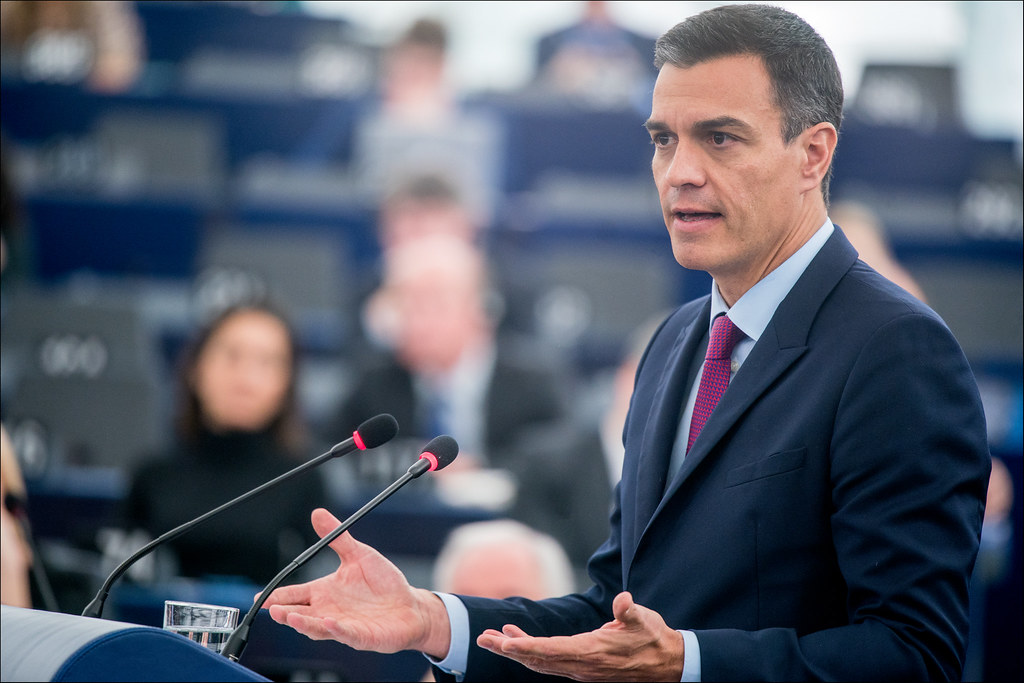How Spain moves on the PNRR

Calviño pact with Brussels to postpone the most controversial reforms to 2022 (taken from El Pais of 28 April 2021)
While in Italy Mario Draghi was forced to detail the reforms imposed by the Commission in detail, the Council of Ministers in Spain approves the plan, pending submission to the EU, and postpones the most critical reforms to 2022.
The Council of Ministers yesterday approved the recovery plan with which Spain expects to receive 140 billion in European funds. The details are not yet known, although the Executive has repeatedly presented its guidelines: a purely formal approval took place yesterday, but the Government is facing a race against time to send the final document to Brussels before midnight on Friday. Moncloa stresses that the final details remain to be defined. However, a fundamental aspect has already been agreed with Brussels: Spain will postpone the most controversial reforms to 2022.
The Spanish economy is therefore preparing to receive 140 billion in 6 years – just over half granted in the form of subsidies that will not have to be repaid – in exchange for reforms. And it aspires to absorb up to 27 billion within its system already this year: it is in second place, after Italy, as the country that will most benefit from the aid of Brussels, in absolute numbers. The government also wanted to anticipate the rest of the countries by presenting the plan in March.
However, the government did not meet this deadline, initially setting 20 April, then postponed to 27, but the plan is not yet ready. The sources consulted underline that the Government is still working on the hundreds of pages (about 2,000 in total) of documentation that Brussels requires, and stress that all the work will be ready by midnight on Friday.
The negotiations with Brussels took place with absolute opacity: neither the initial plan, sent in January, nor the corrections that Brussels requested, nor the requests of the Community Executive, which did not materialize, are known. There was hardly any information for the regions and not even the Executive Committee on Economic Affairs addressed many of the issues related to the plan. Not even the trade unions and employers, who have been negotiating the labor reform for weeks and part of the pension reform for months, do not know its content. Less than 72 hours after its presentation, the objectives that form the foundations of the plan are also unknown, the implementation of which is subject to the arrival of funds from Brussels.
The sources consulted, however, point out that the labor reform will be ready this year, between the second and third quarters, a deadline that the same executive agreed just over a week ago. Immediately after it will be the turn of pensions.
The other reform of the discord is the fiscal one, which also remains for 2022. The Treasury has gained time with the launch of a commission of experts that is expected to issue a report in February next year.
At the moment, tax hikes are a taboo topic in the midst of the election campaign in Madrid, despite the Executive having already promised a minimum corporate tax rate, in line with what was approved by the President of the United States, Joe Biden , and what both Germany and France have claimed in recent days.
But the most difficult reforms for the country have been postponed for another year. Timetable negotiated with Brussels by the Moncloa economic office, in agreement with Calviño, Escrivá and the ministers of labor and finance. But the result is that Spain leaves the most controversial measures for 2022, the year in which the recovery is expected, vaccines, viral mutations and other uncertainties permitting.
This is a machine translation from Italian language of a post published on Start Magazine at the URL https://www.startmag.it/mondo/come-si-muove-la-spagna-sul-pnrr/ on Thu, 29 Apr 2021 07:41:19 +0000.
